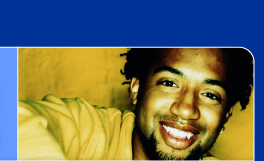DOWNLOADABLE RESOURCES from ACLRC
Here is a list of publications produced
by The Alberta Civil Liberties Research Centre.
They are in PDF format. You will need Adobe® Reader to view these
documents.
If you don't have Adobe® Reader it is available for free by clicking here:
For Teachers - The Alberta Civil Liberties Research Centre presents Implementing a School-Wide Approach to Bullying web site.
These materials offer an online course for teachers to assist in understanding bullying and harassment in schools. The course takes 2–3 hours to complete online and can be done all at once or in several sessions. You will need a connection to the internet to complete the course.
Youth Employment Handbook
This guidebook includes a information about employment, such as rights of youth in being hired, safe working conditions and being fired (updated minimum wage figures in 2011).
Techno-tonomy: Privacy,
Autonomy and Technology in a Networked World
This guidebook includes a discussion on the definition of privacy, the laws
governing it, invasion of privacy, the effect of certain types of technology on our privacy rights, and the data that is being collected about us through technology.
Anti Racism Resource Kit
This Resource Kit is part the Anti-Racism Curriculum and Mentoring Project, and connected specifically to curriculum part of the project. The intent of the project is to promote and facilitate anti-racism education, at all levels of the formal education system. The goal is to ensure that every student receives appropriate and effective anti-racism education and support to address personal experiences of racism and enhance safety in self-affirming and productive ways.
The Adoption Handbook
This handbook is intended to provide information and help answer some questions about adoption. It begins with an overview of adoption in Alberta. A separate section addresses aboriginal adoption. A section on children of assisted reproduction is included as similar issues arise for children of assisted reproduction technologies as with adoption.
The Child’s Right to Love
Information for grandparents, relatives, and others close to the child.
This booklet is for people who want to maintain a relationship with a child. The law says that a child is any person under the age of 18. The child may be your grandchild, niece or nephew, or the child of a friend or former partner.
You are most likely to need this information when the child’s parents end their relationship. Your relationship with the child does not end because the child’s parents separate or divorce. In many cases, your relationship with the child will continue as before. However, if problems come up, this booklet will help you decide how to deal with them.
This booklet describes what the law says about the child’s right to maintain a relationship with you, and to enjoy your love and affection. It also describes how you can make legal arrangements to ensure that these rights are protected.
The Family Law Handbook
This publication is designed to answer questions that young people have about separation and/or divorce. It is intended to assist adults including parents, service providers and professionals who work with young people to help them understand the questions and issues of young people in the family law context. It is not intended to answer every question but attempts to focus on the most common questions asked by young people, with a few additional questions and comments relevant for adults.
Seniors and the Law New Edition
This handbook provides information on a range of legal subjects of interest to seniors. By “seniors”, we mean people who are 65 years of age and older. It is written in “plain English” and is intended as a basic resource for seniors, their friends, relatives and advocates.
Sexual Harassment in School
What can you do if you are being sexually harassed? What are your rights and remedies? This guidebook, Sexual Harassment in School: Your Rights and Responsibilities, will help you understand what sexual harassment is and what you can do about it. This guidebook sets out basic information about sexual harassment and the relevant laws. It is intended for students and educators.
Beyond Blame
In response to the September 2001 terrorist tragedy and subsequent attacks against Arab-Americans, Education Development Center Inc. developed a free, 25-page curriculum for middle and high school students focused on issues of justice and mislaid blame.
Beyond Blame: Reacting to the Terrorist Attack, which is co-sponsored by The Justice Project and the Vietnam Veterans of America Foundation (VVAF), was designed by a team of EDC researchers and curriculum writers who were concerned that the terrorist attacks have created a hostile climate for Arab-Americans — much like the climate Japanese-Americans faced following the attack on Pearl Harbor.
Adapted with permission for Canadian classroom use by the Alberta Civil Liberties Research Centre, Calgary, Alberta.
Acknowledgments: The ACLRC would like to thank Eric Jolly for his generosity and Melissa Luhtanen, and Linda McKay-Panos for their work in adapting the curriculum for Canadian use.
The curriculum features three lessons, designed to stimulate student reflection, discussion, and writing. Lesson 1, "What is Justice? What is the Injustice Here?", guides students through a discussion of the events of September 11th and reports of subsequent attacks and threats made against innocent people perceived to be of Arab descent. Lesson 2, "Has the Past Been Just?", examines parallels between today's events and the internment of Japanese-Americans in the aftermath of Pearl Harbor. Lesson 3, "How Can You Prevent Injustice?" leads students through a discussion of the kinds of actions they can take to prevent injustice, discrimination, and mislaid blame.
Alberta Civil Liberties Research Centre
c/o University of Calgary, Faculty of Law
2500 University Drive N.W., Calgary, Alberta, Canada
Telephone:
Fax: (403) 284-0945








